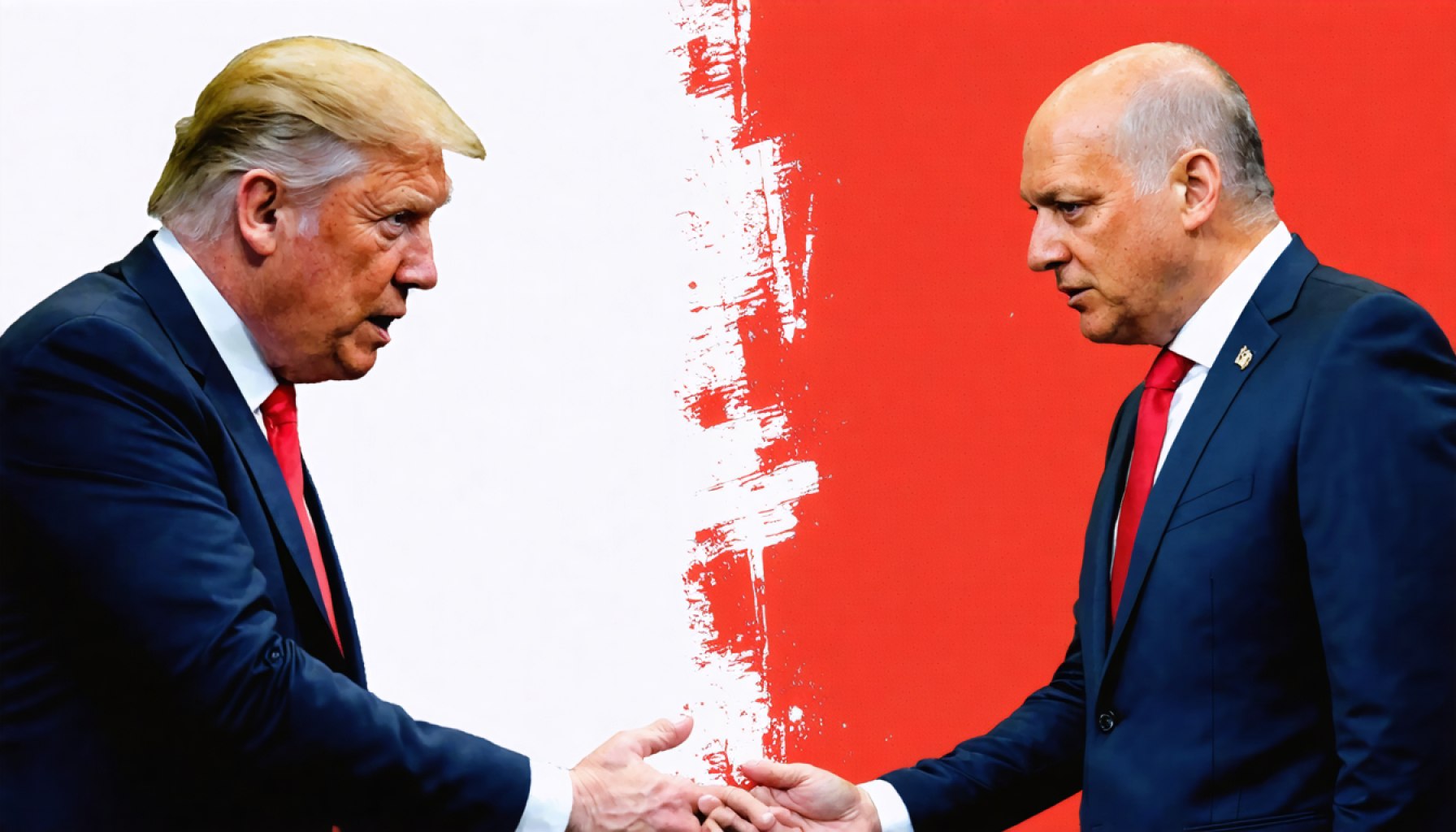- Friedrich Merz is chosen as the Union’s candidate, while the Social Democrats face uncertainty over Olaf Scholz’s candidacy.
- Filmmakers Mathis Feldhoff and Andreas Huppert document the political journey and transformation of Scholz and Merz, capturing their contrasting personas.
- Merz seeks to redefine himself from a business background, displaying statesman-like poise, while Scholz surprises with vigor and commanding rhetoric.
- The film explores themes of electoral success, political transformation, and personal evolution through interviews and campaign moments.
- Key questions arise: Can Merz sustain his polling advantage? What inspires Scholz’s renewed confidence?
- The outcome of the upcoming elections could significantly impact Germany’s future, as voters anticipate an intense political race.
In the evolving landscape of German politics, the stage is set for a gripping showdown. As the autumn leaves began to fall in 2024, the Union boldly chose Friedrich Merz as their torchbearer. Meanwhile, the Social Democrats found themselves embroiled in a dilemma over Olaf Scholz’s candidacy. Whispers of Boris Pistorius as a potential contender pervaded the halls but ultimately faded away.
Enter Mathis Feldhoff and Andreas Huppert, filmmakers armed with keen lenses, chronicling the saga of Scholz and Merz. Two figures emerge, contrasting in both persona and politics. Merz, with a past marked by impatience, dons a cloak of statesman-like poise, striving to redefine himself. Scholz, known for his quiet reserve, astounds followers with a newfound vigor, wielding commanding words and steely resolve.
Through the camera’s eye, these transformations unfold. From the trust-pledging speeches to rigorous campaign trails, every moment is captured. Interviews with those who know them best unveil potential secrets to their electoral success or impending downfall. Scholz’s extensive governmental journey stands in stark contrast to Merz’s abbreviated political resume, having spent years in the world of business before his political renaissance.
The narrative teases us with pressing riddles: Can Merz maintain his polling advantage through February’s elections? Will the dissonance that shattered past Union victories resurface? More critically, what fuels Scholz, Germany’s least celebrated chancellor, with the confidence to pivot the electoral outcome in his favor?
The answer could shape the destiny of Germany. Voters wait with bated breath as the clashing titans of Merz and Scholz march towards an electoral face-off, promising a race that no spectator will want to miss.
Germany’s Political Heavyweights: Merz vs. Scholz – Who Will Prevail?
How-To Steps & Life Hacks: Engaging in Political Campaigning
Engaging effectively in a political campaign requires a blend of strategy, communication, and adaptability. Here are some steps to consider:
1. Define a Clear Message: Both Friedrich Merz and Olaf Scholz have crafted narratives that resonate with their core audiences. Defining a concise and compelling message is crucial.
2. Leverage Digital Platforms: Utilize social media for outreach. This approach allows for targeted engagement, particularly with younger demographics.
3. Organize Grassroots Movements: Mobilize volunteers to increase awareness and foster a sense of community.
4. Conduct Polling and Feedback Loops: Regularly assess public opinion to refine strategies.
5. Participate in Debates and Public Forums: Engaging in direct discourse highlights a candidate’s ability to address critical issues.
Real-World Use Cases: Political Transformations
– Friedrich Merz: Known for his career in business, Merz represents the potential to integrate financial expertise into governance, attracting voters who prioritize economic stability.
– Olaf Scholz: His extensive experience in governance suggests a continuity that appeals to those wary of drastic changes.
Market Forecasts & Industry Trends
Political analysts anticipate increased volatility in the German political landscape due to shifting voter priorities, comprising economic management, climate policy, and social welfare. Given the upcoming elections, leaders must adeptly navigate these dynamic voter expectations.
Reviews & Comparisons: Merz vs. Scholz
– Merz:
– Pros: Business acumen, new perspectives, bold plans for restructuring.
– Cons: Limited political record, potential disconnect with career politicians.
– Scholz:
– Pros: Extensive experience, governmental continuity, EU relations.
– Cons: Perceived lack of charisma, entrenched bureaucracy ties.
Controversies & Limitations
Both candidates face unique challenges. Merz’s business past might not resonate with all voters, while Scholz must overturn his reputation as an uncharismatic bureaucrat. These narratives create potential vulnerabilities in their campaigns.
Features, Specs & Pricing
In political terms, ‘pricing’ equates to what constituents might gain or lose. Merz offers new policies aimed at economic overhaul, whereas Scholz promises stable governance and continued integration within the EU framework.
Security & Sustainability
Security policies from both candidates emphasize international cooperation. Merz suggests reforms to enhance Germany’s global economic competitiveness, while Scholz focuses on sustainable growth and climate initiatives.
Insights & Predictions
Future German elections will likely pivot on the balance between innovation (as represented by Merz) and stability (as embodied by Scholz). Voter turnout and engagement, especially among younger and minority groups, will be a deciding factor.
Tutorials & Compatibility
Engaging with political discourse requires understanding the platforms. Both parties provide comprehensive resources and platforms for voter education:
– CDU: CDU
– SPD: SPD
Actionable Recommendations
1. Stay Informed: Regularly review credible news sources and attend public discussions.
2. Participate: Engage in political talks and consider volunteering for campaigns.
3. Vote: Ensure your voice is heard.
These steps ensure active participation in shaping Germany’s political future, making informed decisions, and contributing to the democratic process.
Keep an eye on how the strategies of Merz and Scholz evolve as the political landscape shifts towards an undoubtedly pivotal election.
